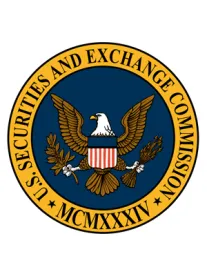Faced with a mounting caseload of whistleblower complaints (more than 6,000 since 2011), the Securities and Exchange Commission has brought its first-ever whistleblower retaliation case under the Dodd-Frank Wall Street Reform and Consumer Protection Act.
The agency charged hedge-fund advisory firm Paradigm Capital Management, Inc. and owner Candace King Weir of retaliating against a trader who had reported potentially illegal activity to the SEC. According to the SEC’s Order, Paradigm and Weir, without admitting or denying any wrongdoing, agreed to pay $2.2 million (disgorgement of $1,700,000, prejudgment interest of $181,771, and a civil penalty of $300,000) and to cease and desist from committing future violations of the Securities Exchange Act and Investment Advisers Act.
Sean McKessy, the head of the SEC’s Office of the Whistleblower, warned that the agency “will continue to exercise [its] anti-retaliation authority in these and other types of situations where a whistleblower is wrongfully targeted for doing the right thing and reporting a possible securities law violation.” Further, Andrew Ceresney, director of the SEC Enforcement Division, warned against interference with SEC whistleblowers, stating, “Those who might consider punishing whistleblowers should realize that such retaliation, in any form, is unacceptable.”
The Case
Paradigm Capital Management, Inc. advises affiliated hedge funds, including PCM Partners L.P. II, which is a general partner of PCM Ventures II LLC, a company 99 percent owned by Weir. According to the SEC Order, from 2009 to 2011, Weir sought to reduce the tax liability of Paradigm’s investors (including PCM Partners) by engaging in 83 principal transactions in which Paradigm sold securities that had unrealized losses either to the open market or to C.L. King & Associates, Inc., a broker-dealer owned and controlled by Weir. Moreover, the series of transactions were conducted without providing effective disclosure to, or obtaining effective consent from, PCM Partners — a violation of Section 206(3) of the Investment Advisers Act.
In addition, the SEC found Paradigm’s Conflicts Committee, established to satisfy the written disclosure and consent requirements of the Investment Advisers Act, was itself conflicted. The Committee comprised of two people, both of whom reported to Weir, and one of whom was the Chief Financial Officer of both Paradigm and C.L. King. The SEC Order noted that each time the broker-dealer purchased securities from the Fund, C.L. King’s net capital was negatively impacted. Typically, the CFO monitors those transactions and acts in the best interest of the Fund. However, in this case, the SEC pointed out, because the CFO acted on both sides of the transactions, the necessary oversight was lacking, thus creating the conflict.
Paradigm’s head trader (identified as the “Whistleblower” by the SEC) reported the transactions to the SEC on March 28, 2012. Until July 2012, the Whistleblower continued in his position as head trader. According to the SEC Order, on July 16, 2012, the Whistleblower informed Weir and C.L. King’s Chief Operating Officer that he had reported potential securities law violations to the SEC. Over the following months, Paradigm engaged in allegedly retaliatory actions against the Whistleblower, including removing him from Paradigm’s trading desk, changing his job function to full-time compliance assistant, investigating him for the conduct he had reported to the SEC, and denying him access to Paradigm trading and account systems, as well as his Paradigm e-mail system. The Whistleblower voluntarily resigned on August 17, 2012, demonstrating that a whistleblower need not be fired by his employer in order to bring a successful whistleblower claim.
Anti-Retaliation
The 2010 Dodd-Frank Act prohibits employers from retaliating against a whistleblower employee. The Act required the SEC to adopt rules to implement a whistleblower bounty program under which the SEC would pay awards to eligible “whistleblowers” who “voluntarily” provide the agency with “original information” in the required form and manner that leads to a successful enforcement action that yields monetary sanctions of over $1 million. In May 2011, the SEC promulgated final rules implementing the whistleblower provisions of Section 21F of the Securities Exchange Act of 1934, “Securities Whistleblower Incentives and Protection,” enacted as Section 922 of the Dodd-Frank Act.
The rules detail the conditions that warrant anti-retaliation protection, as well as whistleblower awards. A whistleblower employee is entitled to anti-retaliation protection if he or she reasonably believes that the information he or she provided relates to potential securities law violations. An employer is prohibited from discharging, demoting, suspending, threatening, harassing, or in any other manner discriminating against a whistleblower in the terms of employment because the whistleblower engaged in protected whistleblowing activities. Additionally, the SEC is authorized to bring enforcement actions against employers who retaliate against whistleblowers who report potential securities law violations to the SEC.
Further, a qualifying whistleblower is entitled to at least 10 percent, but no more than 30 percent, of the monetary sanctions imposed. To date, the largest award issued by the SEC to an individual whistleblower was over $14 million in 2013.
The possibility of any reward at all can push a whistleblower to report potential wrongdoing to the SEC. By dangling the carrot of possible financial gain under the 2011 anti-retaliation rules, the SEC has further incentivized employees to blow the whistle on their employers for suspected wrongdoing.
What Employers Can Do
First, employers should promote a culture that does not tolerate retaliation against employees who in good faith report misconduct internally or externally.
Second, employers should have a provision in their Code of Conduct that prohibits retaliation and makes it clear that retaliation will not be tolerated and, is itself, grounds for termination.
Third, employers should conduct training on this issue as part of the annual Code of Conduct training.
Fourth, employers should align organizational behavior to the requirements of the Dodd-Frank Act so that whistleblowers will have little to complain about and, where they have a complaint, little incentive to approach the regulators.
Taking these important steps should minimize the likelihood that a manager will retaliate against an employee for doing what that employee should do — reporting misconduct through the appropriate chain of command, hopefully without rushing first to the SEC.






 />i
/>i

